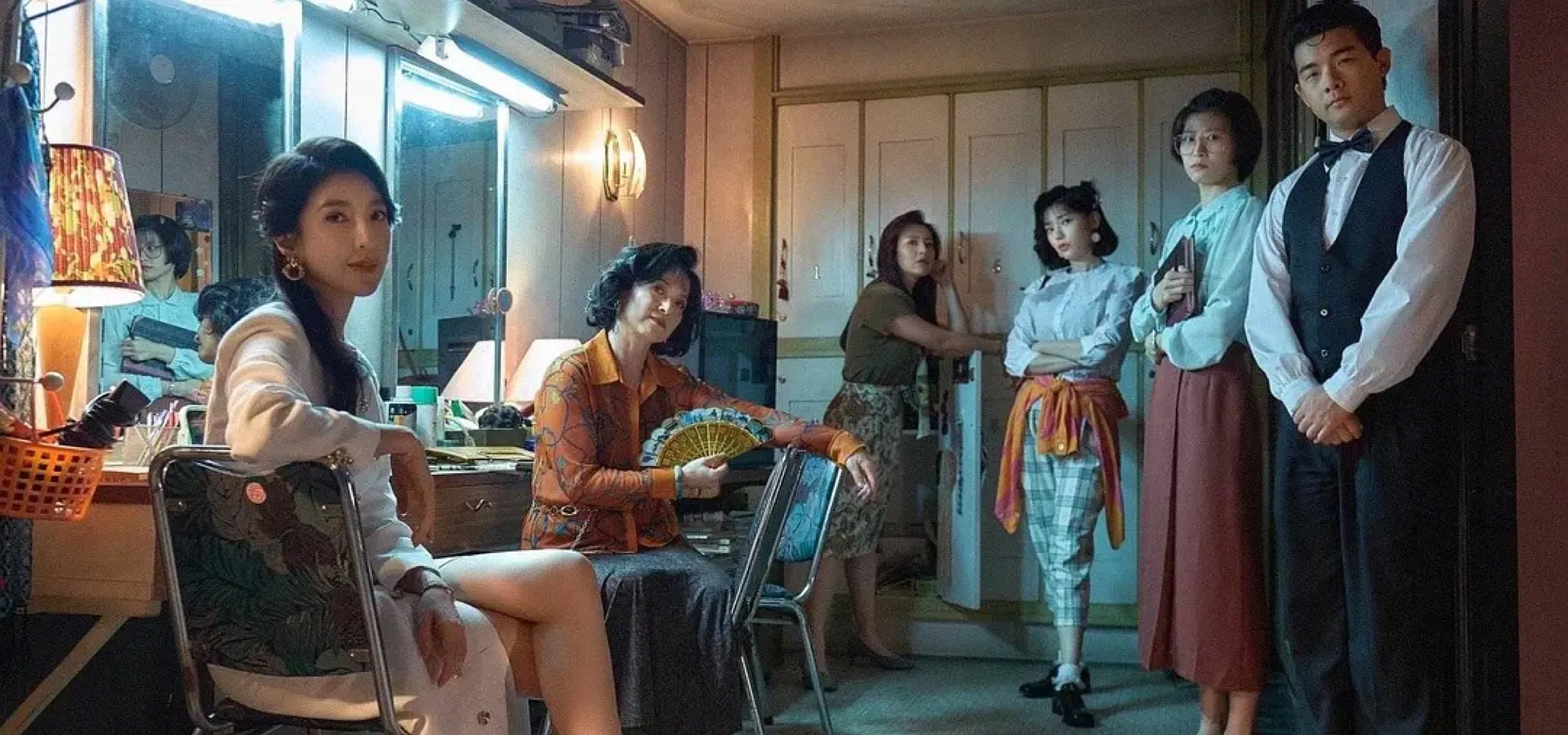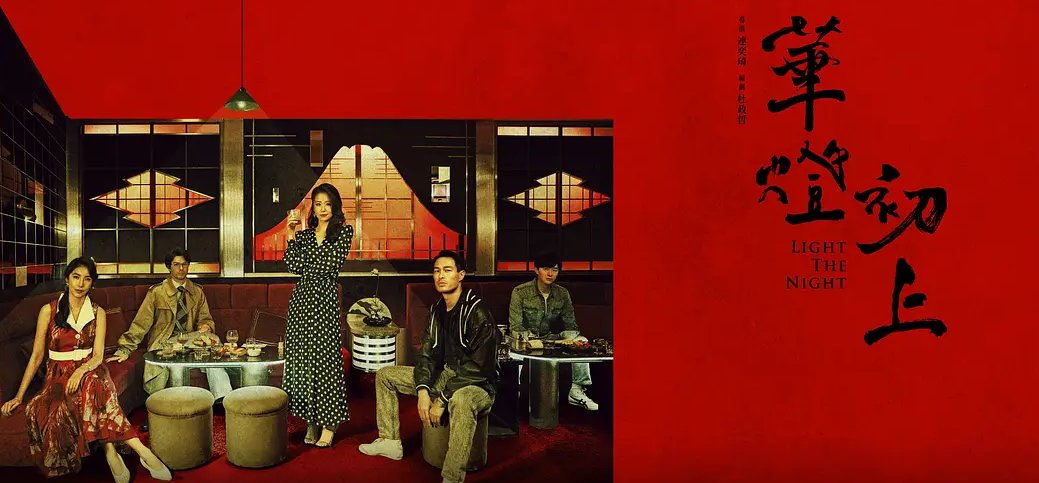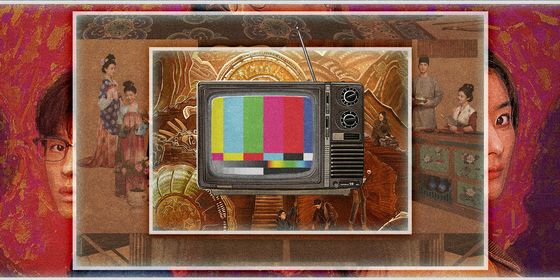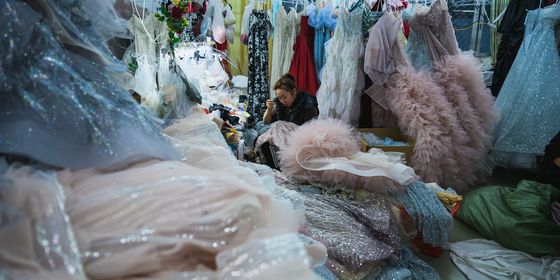A popular thriller set in 1980s Taiwan humanizes the women behind a difficult and stigmatized profession
“What do we sell? A sense of romance,” says Sue, co-owner of a nightclub in hit TV thriller Light the Night. But romance comes with bitter costs.
On the surface Light the Night is a gritty murder mystery set on the neon-lit streets of 1980s Taipei, opening dramatically with a group of students finding an unidentified body on a mountainside, which carried the business card of Light, a Japanese-themed nightclub run by Madame Rose (Ruby Lin) and Sue (Cheryl Yang).
However, the show has struck a chord with audiences due to its detailed and nuanced portrayal of “hostesses (陪酒女),” whom director Lien Yi-chi spent a year observing in Japanese-themed hotels in Taiwan before shooting. By focusing on the struggles in the daily lives of the women, the show humanizes this often-stigmatized and little-understood career.
陪酒女 (péi jiǔ nǚ, literally “female drinking companion”), or 小姐 (xiǎojiě, “miss”) as customers in the show sometimes refer to them, are employed by bars and nightclubs under assumed professional names. They drink with customers, top up their glasses, light their cigarettes, and provide them with company and conversation through the night—all with the aim of getting clients to spend.
While modern hostess bar culture appears to have emerged through Japan’s historical geisha tradition, it began to put down roots in cultures across East Asia, including China, in the 1980s and 90s. Bars, clubs, and KTV parlors offered female companions to customers. In the 1980s Taiwan saw a peak in Japanese-themed hostess bars, meeting demand from Japanese businessmen who flooded to the island after its economy took off—The Paper reports that Linsen North Road, the infamous red-light district where the fictional club in the show is located, had over 600 such bars and clubs at that time.
The series, co-produced by Netflix and Bossdom, a Taiwan-based company, was released in November last year. Despite having no official release on the Chinese mainland (apparently due to copyright restrictions), it has still attracted widespread viewership, with a hashtag of the show gaining 260 million views on Weibo. The drama has also garnered an impressive 8.1 out of 10 on film review platform Douban, with viewers praising its focus on the individual growth of the characters and the bonds among the women.
The show challenges some of the negative attitudes toward women working in nightclubs in China today. Both in Taiwan and on the mainland, hostesses are often associated with prostitution and promiscuity. In 2020, when a 20-year-old woman surnamed Zhao caught Covid-19 in Chengdu, she was criticized by many netizens as being a “playgirl” and “not a decent person” after contact tracing reports revealed her to have visited several nightclubs as part of her job as a club promoter and “atmosphere booster.”
But Light the Night acknowledges the complex nature of hostess work. For a start, their customers aren’t always there for a bit of fun. Most of the bar scenes set in Light are in fact business negotiations, in which hostesses play a valuable part. During his field research in Taiwan, director Lien told Xinmin Evening Paper that “the reason why business negotiations happen in nightclubs…is because the hostesses can use their social networks to help you find more potential partners in such a cozy environment,” pointing to the common practice of networking in KTV bars through alcohol, food, and women.
Each of the characters (who go by Japanese names to better woo customers) has her own knotty reasons for working in the industry. Aji (Chiung-Hsuan Hsieh), a hostess in her 50s heavily in debt due to gambling, has to find a sugar daddy to afford her expensive lifestyle. Aizi (Puff Kuo) is a college student who wants to fend for herself away from her overbearing mother. Huazi (Esther Liu) has moved into Taipei from the countryside, but ends up running afoul of the law while trying to escape from her manipulative ex-boyfriend.
The motives for becoming a hostess may be simpler in real life. In a Zhihu article from 2018, a user claiming to have been a hostess in 2011 wrote that she took the job in a Tianjin bar to boost her income. She earned 200 yuan a night by working from 8 p.m. to midnight, far more per hour than her monthly 2,000 yuan salary from her previous full-time factory job. The work mainly involved drinking, dancing, playing drinking games, and chatting with male customers. The writer criticizes those outside the industry for viewing it as “fake,” claiming to have given her clients her real name and even told them stories of her hometown.
Accusations of fakery echo in the show, with Rose’s ex-boyfriend criticizing her nightclub for being just a “stage” for performing. “Nothing in my club is staged; it’s my life,” Rose retorts.
Far from a life of lazy luxury, Light the Night suggests that being a hostess is fiercely competitive. As hostesses get bonuses on top of their basic pay for every drink their customers buy, the characters spar with each other and work hard to gain and retain the wealthiest customers. In the show, Sue even plays golf with her customers, and the women learn Japanese to converse with clients from Japan.
These characters may be the center of attention at a party, but in reality are highly vulnerable, living on the margins of society. Light the Night is at its best when it hones in on backstories—Huazi’s is particularly heart-wrenching. Imprisoned for stabbing her violent ex-boyfriend, she is invited by Rose to restart her life at Light, but she is attacked by a group of customers and raped: “Do I deserve this?” she sobs afterward.
Despite Light the Night’s merits, it’s unclear how many minds have been changed by a show with a tendency to romanticize the profession. On viewing platform Ren Ren Video, many user comments about the show question why these apparently good-looking and well-dressed women choose to work as hostesses, rather than find some other “decent” work. One user offers an answer: “They have no technical skills education, so the only ‘decent’ job they could do would be manual labor. Since they’re already accustomed to dressing beautifully, eating out, and having fun every day, why wouldn’t they choose this job?”














